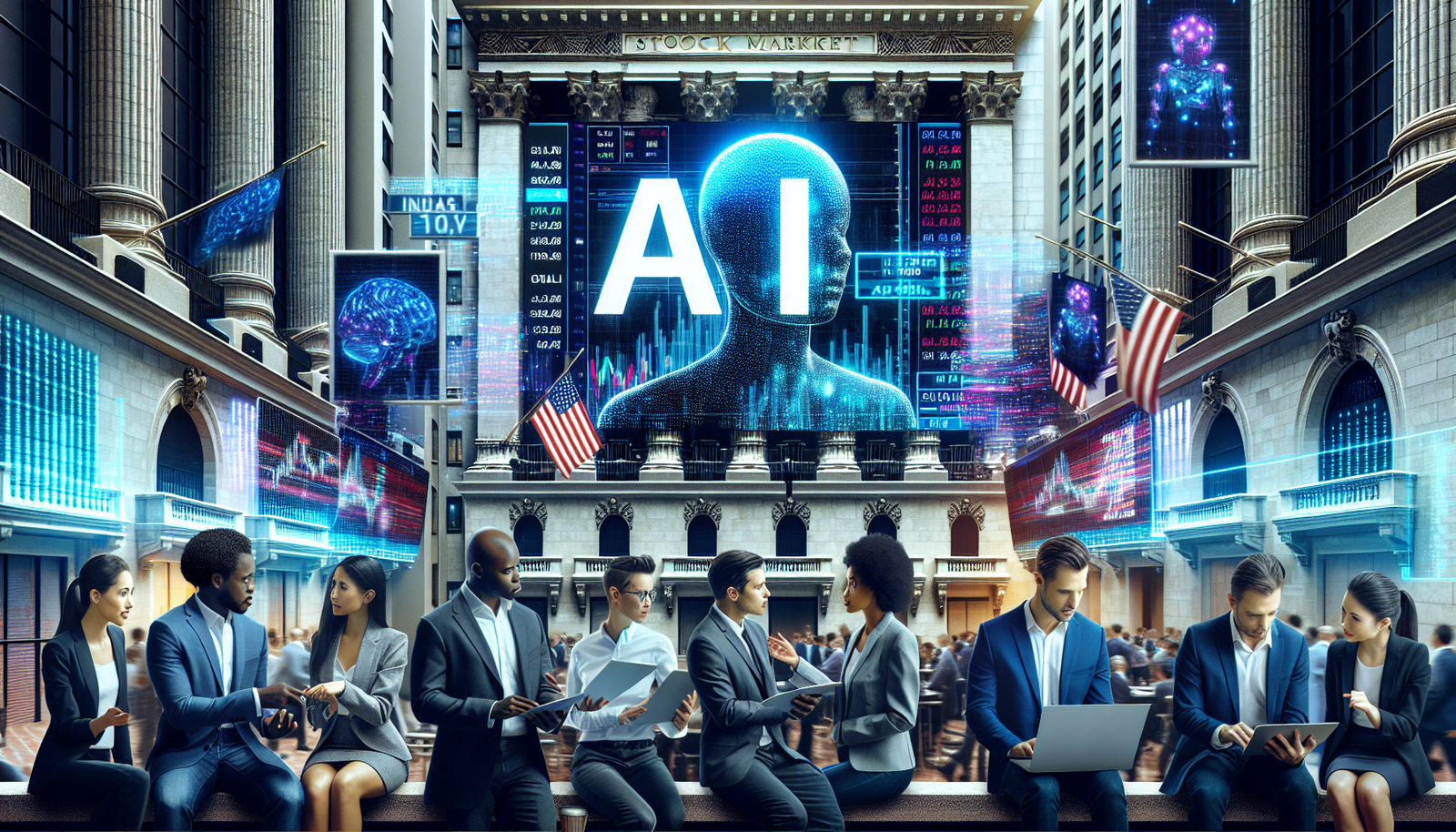The importance of artificial intelligence (AI) is asserting itself with unprecedented power on Wall Street. This technology, at the forefront of the digital revolution, is generating growing interest among savvy investors. Companies are redefining their business models by integrating AI applications, thus creating invaluable opportunities. Competition is intensifying among tech giants, while innovative startups emerge, drawing all eyes. AI is shaping the current financial landscape by disrupting traditional strategies and offering unprecedented yield prospects. Investors must monitor these crucial trends to navigate effectively in this rapidly changing environment.
Investments in Artificial Intelligence
Wall Street is buzzing around investments in artificial intelligence (AI), convinced of their industrial transformation potential. Traditional companies are investing heavily in AI-based technologies to improve their efficiency and profitability. Firms like Microsoft and Google are ramping up their efforts to integrate AI into various services, incorporating automation and predictive analytics features.
AI Innovators in the Market
Innovative startups are attracting investors’ attention with their unique solutions. The French company LightOn, for example, is preparing for an entry into the stock market with promising technology that exploits quantum computing architectures to enhance machine learning. This trend towards venture capital is clearly visible with the increased support for ChapsVision, dubbed the “European Palantir,” which develops AI solutions for complex data.
Risks Associated with AI
Despite the opportunities, risks remain evident. Concerns about sector regulation are emerging as AI becomes central to sensitive applications like fraud detection. Experts worry about possible algorithmic biases that could lead to significant social repercussions. A recent study indicates that AI could inadvertently exacerbate inequalities, leaving certain sectors struggling.
Regulatory Developments
Regulators are becoming aware of the urgency to create frameworks to govern the use of AI. The European Union is preparing specific regulations for AI technologies, addressing issues such as data protection and algorithm transparency. A dialogue is ongoing to ensure that AI systems do not compromise citizens’ rights.
Market Outlook
Analysts anticipate exponential adoption of AI technologies over the coming years. Traditional companies, such as IBM, assert that AI will revolutionize the finance sector, promising unprecedented efficiency gains. Investment yield forecasts in AI are substantial, urging investors to closely monitor this rapidly evolving sector.
Targeted Investment Opportunities
An attentive eye should be kept on the shares of companies strongly positioned in AI, such as Salesforce and Adobe. Their use of AI to enhance customer experience is part of a broader strategy to adapt to the digital market. Forecasts indicate that these tech giants will gain in value as their AI integration strengthens.
Technology and Social Impact
The deployment of AI across various industries raises ethical and social questions. Conversations around the implications of generative AI, for instance, are taking a significant turn. Initiatives are emerging to promote responsible development, including those aimed at preventing potential pitfalls like bias in algorithms. Research projects exist to determine how AI could positively transform sectors such as education and health.
Changes in Trading Practices
The way traders interact with markets is also evolving thanks to AI. Natural language processing tools now analyze market sentiment in real time, thus influencing investment decisions instantly. This technology represents a major competitive advantage, providing much more accurate and timely analyses of market conditions.
Convergence of Industries
The convergence between the tech sector and other industries is becoming evident through AI. Collaborations are underway between tech players and companies in other sectors, including health and agriculture. These initiatives aim to harness the power of data and algorithms to enhance productivity and sustainability.
Conclusion on Artificial Intelligence
Recent developments in artificial intelligence mark a turning point for Wall Street. While there are risks associated with emerging technologies, investment opportunities seem numerous and varied. The AI market is becoming a major strategic issue to closely monitor in the coming months and years.
FAQs on AI News that Wall Street is Closely Following
What are the main sectors impacted by artificial intelligence on Wall Street?
Artificial intelligence influences various sectors such as finance, health, transportation, and technology. It improves data analysis, optimizes investment decisions, and transforms customer services.
How is AI changing investment strategies in financial markets?
AI allows for faster and more accurate data analysis, helping investors identify market trends and make informed decisions. This also leads to a reduction in risks and an increase in potential returns.
Which tech companies are at the forefront of AI on Wall Street?
Companies like Google, Microsoft, NVIDIA, and IBM are among the leaders in AI innovation. They are developing solutions that are transforming entire sectors.
How can investors identify AI-related investment opportunities?
Investors should monitor new trends, read sector analyses, attend AI conferences, and follow financial publications to spot innovative and promising companies.
What are the risks associated with investing in AI companies?
The main risks include volatility in the tech market, false optimism around new technologies, and potential regulations that could affect AI development. Thorough research is essential.
What does the future of AI on Wall Street look like?
The future of AI predicts increased adoption across various sectors, with growing use in predictive analytics and automation that will transform the economic and financial landscape.
How does regulation affect publicly traded AI companies?
Regulation can impact innovation teams and data collection methods of companies. Strict regulation could stifle innovation, while a positive approach could foster adoption and investment.
What is the importance of AI talent for publicly traded companies?
The success of AI companies largely depends on the availability of technology experts. Companies that attract top AI talent will be better positioned to innovate and remain competitive in the market.






